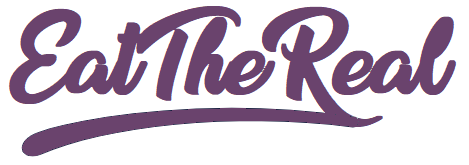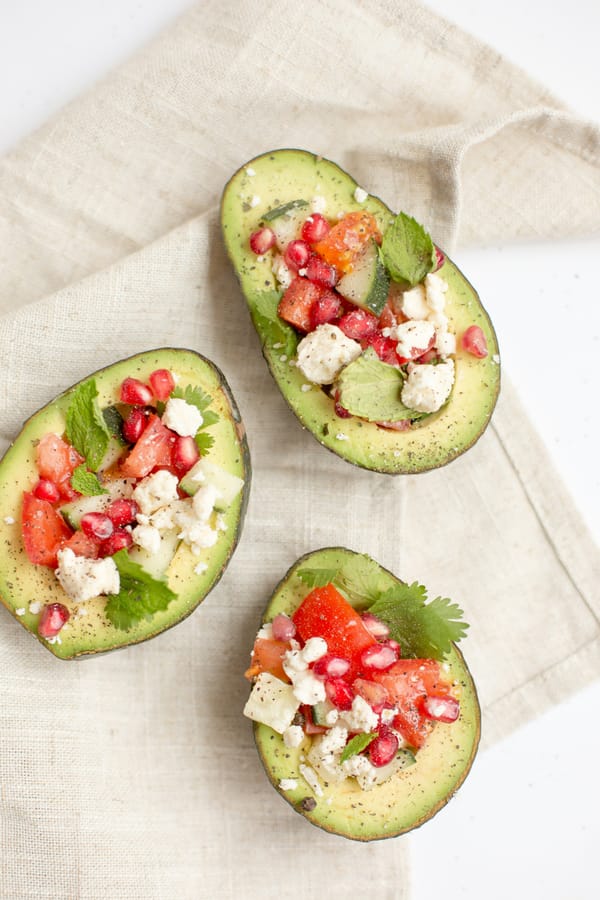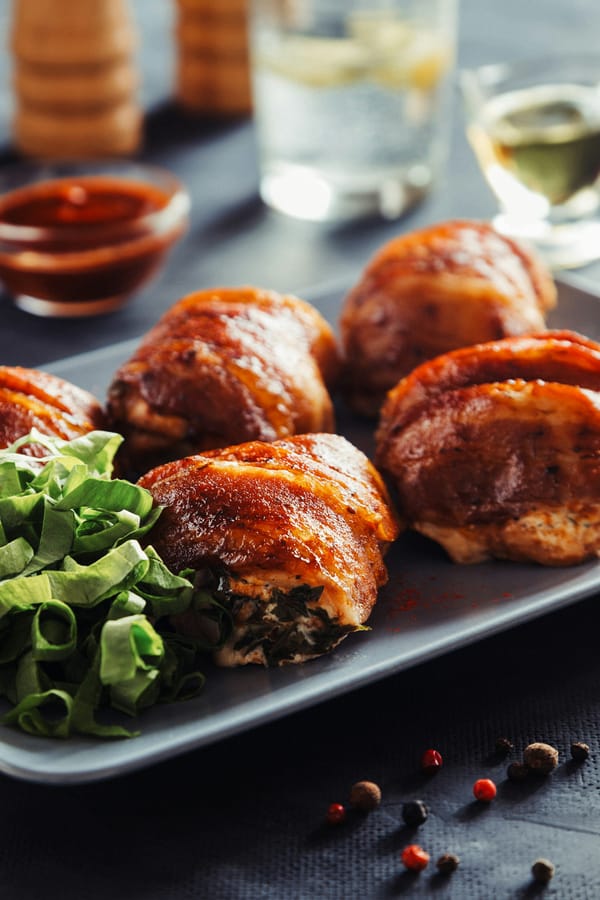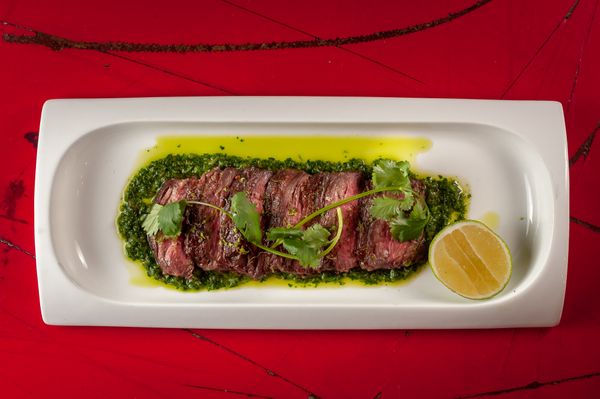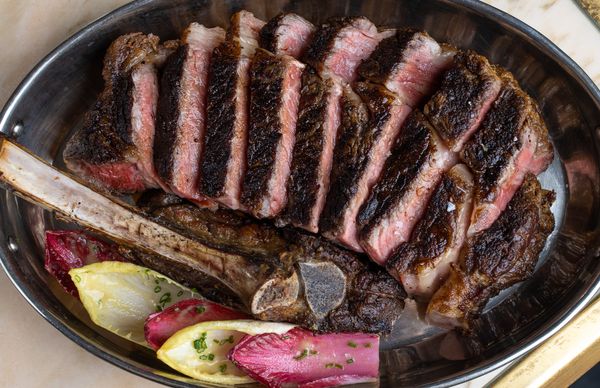Brisket Ramen. A Taste of Cheu Fishtown With Chef Ben Puchowitz.
"This Jewish/Korean mashup has the soul of a traditional Jewish feast with the added flair of Korean chile paste and sesame oil. Most jews, myself included, get really excited when they see a big, fluffy, juicy matzo ball placed in front of them."
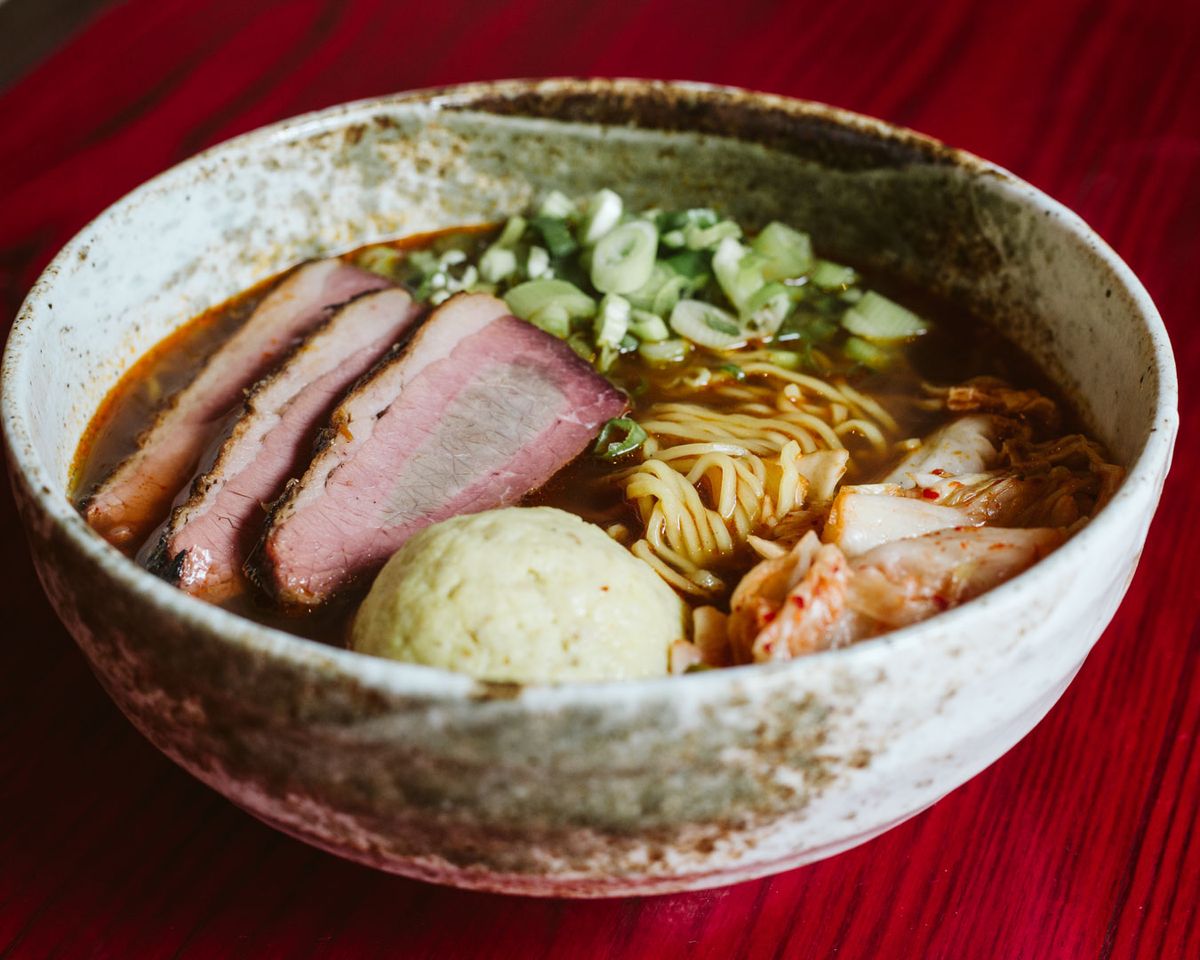
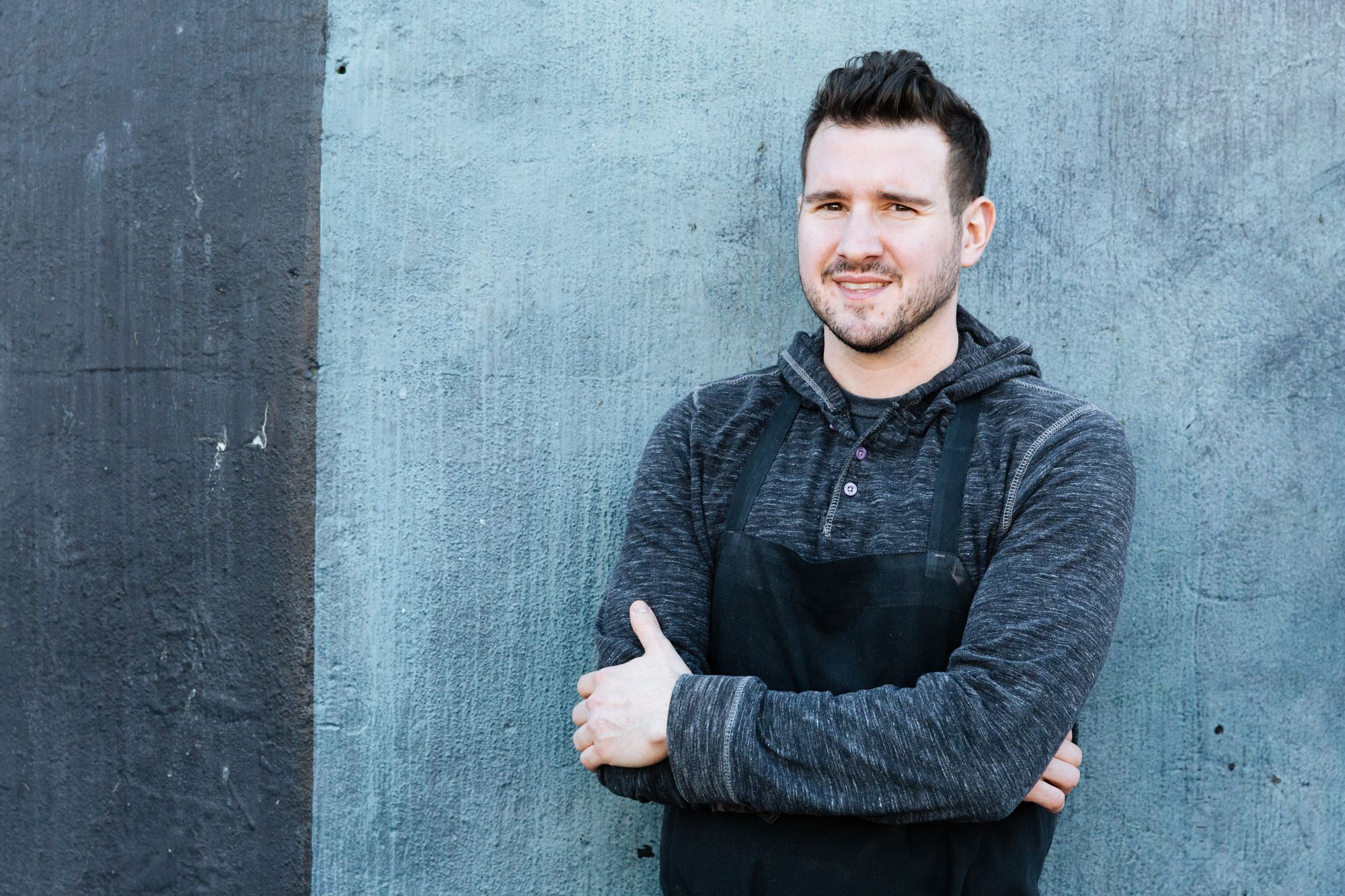
Ben Puchowitz is the Chef and Co-owner of Cheu Fishtown in Philadelphia, one of a handful of restaurants in his and Shawn Darragh's growing food empire. Cheu Fishtown doesn't try to recreate "authentic Asian dishes", they just "cook what they like to eat" and blend many cuisines to create their popular bowls of steaming-hot ramen. To learn more about Ben and what drives him as a chef, we asked him a few questions and to share one of his favorite recipes.
What do you like to cook and why?
"Becoming a chef was not always on the top of my list of desired professions. I went to school for something totally unrelated. Nonetheless, I gravitated towards restaurant work while attending college. I come from a family of entrepreneurs, so the idea of becoming a chef and owning my own business started to make sense at some point. Cooking also came naturally to me.
"As I was honing my chops as a line cook and subsequently as a chef, I found myself being drawn to Asian ingredients and flavor profiles. All of the umami in the prepared ingredients, like miso, soy sauce and the fermented chili pastes added so much flavor and uniqueness to the 'New American' food that I had been familiar with. With inspiration from chefs like David Chang and Danny Bowien, I began to develop a style that combined the flavors of 'Asian street food' with the food memories of my Jewish heritage."
What is your best cooking tip for readers?
"Cooking can be very similar to learning an instrument. When you start, it can feel really awkward and sound really bad. Then you learn a riff or a chord, and there seems to be some semblance of ability. The riffs or chords are kind of like go-to recipes in cooking, like salad dressing or roasted chicken. In order to make a song, a musician needs to melodically construct a sequence of chords and riffs together in a way that is pleasant to the ears. Chefs do something very similar. They take recipes that they have executed over a hundred times and combine them with other recipes they are comfortable cooking. The end result is something that is pleasant to the mouth."
What would you like to change in the restaurant industry?
"This answer could be as long as a book, but I'll try to summarize. Generally speaking, the lives of restaurant employees and more often back-of-house employees can be pretty grim. It is nearly impossible to participate in "normal" life activities, like communicating with your family or attending important life events. Working in restaurants can take a toll on one's body and more noticeably, one's mind. Undiagnosed mental illnesses run rampant, and drugs and alcohol are often used to cope with the stress and anxiety that the work inevitably brings forward. There have been some recent pushes to make the restaurant work environment a better place for its workers. Chefs around the country have been publicly promoting sobriety and modeling more healthy lifestyles than the previous chef generation. But, ultimately, each individual restaurant will need to generate higher check averages in order to better take care of its staff. Restaurant owners will need to gain the moral and ethical trust of their customer base so that they can collectively raise prices for the benefit of their staff without fear of losing revenue."
What are your favorite dishes to cook that you highly recommend to diners?
"My favorites are Potato Latke Okonomiyaki Style, Short Rib Pastrami, Brisket Ramen and Dan Dan Green Beans."
Why did you choose this recipe to share?
"This Jewish/Korean mashup has the soul of a traditional Jewish feast with the added flair of Korean chile paste and sesame oil. Most jews, myself included, get really excited when they see a big, fluffy, juicy matzo ball placed in front of them. This excitement led me to add this dish to our noodle repertoire. It has since become one of the most popular menu items."
Recipe: Brisket Ramen with matzo ball, kimchi and sesame chili broth
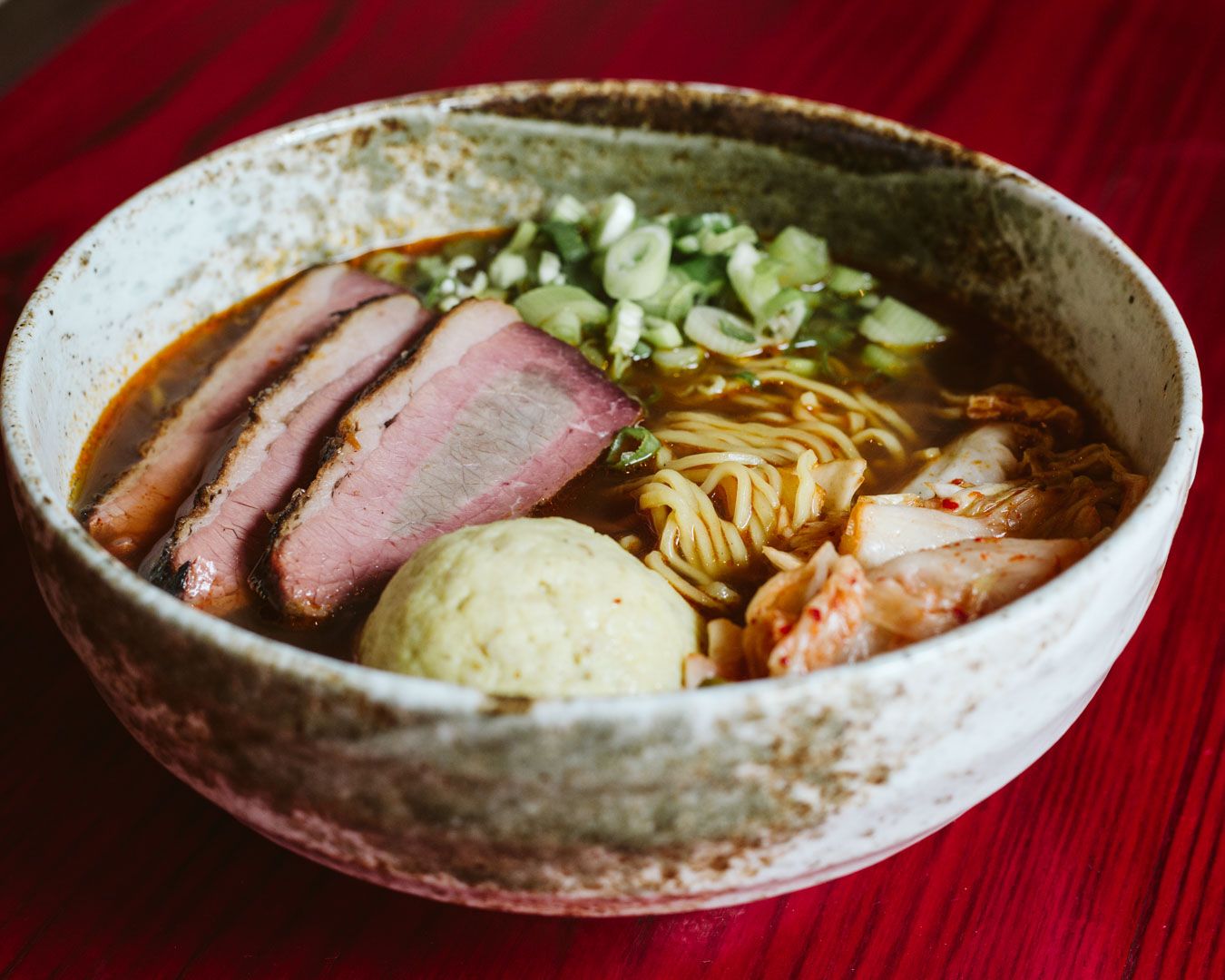
Broth:
- 5qts water
- 2lbs trimmed brisket cut into 4in blocks
- 1 sheet konbu (rinsed)
- ½ cup dried shiitake mushrooms
- 1 onion
- 1 bunch scallion
- 1 small head napa cabbage
- ¼ cup mirin
- 4T light soy sauce
- 3T sesame oil
- 3T tomato paste
- 1/8 cup ssamjang
- 1/8 cup gochujang
- 5pc small dried shrimp
- 2pc dried anchovy
- 3T sugar
- Salt to taste
Add all ingredients to a large pot and simmer for 2.5 hours. Strain broth through a fine mesh colander and save the pieces of brisket for slicing. The rest of the debris can be thrown away. Let the brisket cool down before you slice it. Taste broth and add salt if needed.
Note: you can find most of the exotic ingredients at any Asian market or you can order them online.
Matzo Balls:
- 1 box streitz matzo ball mix
- 1 pack chicken bouillon
Follow the directions on the box. Use the chicken bouillon in your cooking liquid. It will help to flavor the balls. You will have more balls than needed for the soups. Store the hot matzo balls in a container with plastic wrap over top to prevent them from drying out.
Serving:
You need:
- 4 bowls
- Hot broth (simmering on the stove)
- Thinly sliced brisket
- Hot matzo balls
- Kimchi
- Chopped scallion
Assembly:
Cook your favorite noodles (we use thin ramen noodles) in salted water. The noodle package will usually give directions. Portion the cooked noodles into the four soup bowls. Add a large matzo ball to each bowl. Ladle the hot broth over the noodles. Top the noodles with the sliced brisket, a nice pinch of kimchi and a scattering of scallions and it is ready to serve.

Cheu Fishtown
1416 Frankford Ave, Philadelphia, PA 19125, USA
Website . Facebook . Instagram . Twitter
If you enjoyed this post, please subscribe to our email newsletter to receive new posts directly to your inbox!
